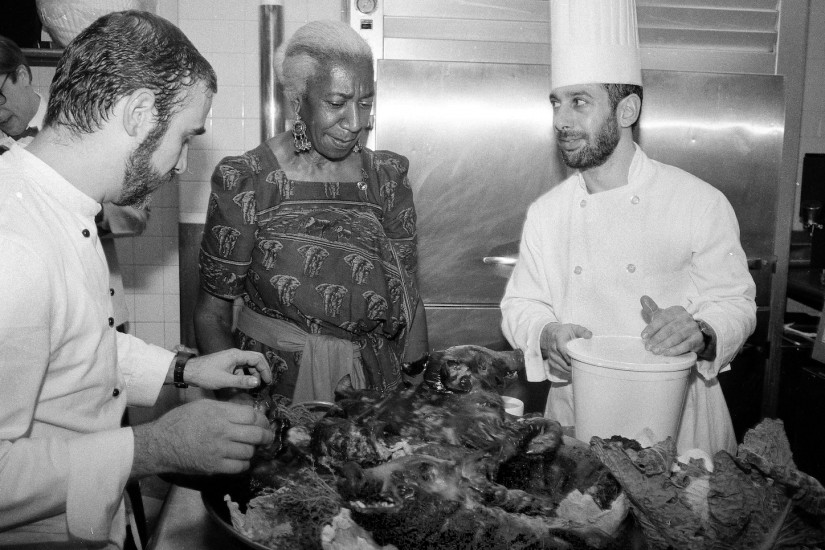“I’d envisioned a chef of Lewis’s stature spending her late-in-life years in something closer to prosperous—a big, rambling house, maybe, with a huge country kitchen outfitted with butcher-block counters and a deep soapstone sink,” Chang Rae-Lee wrote of Lewis in Gourmet. “Or perhaps something in the polished-brass mode of the New South, but still grand and stately.” That was not the case. Instead, he noted, Lewis lived with her caretaker, white Southern chef Scott Peacock, “in a patch of low-rise, older brick apartments,” so unremarkable that Lee compared it to a tiny college dorm.
The great paradox of Lewis, Franklin reminded me, is that she died childless and without much money, never achieving the kind of wealth of the people she cooked for at Café Nicholson—and certainly not the kind of riches one may associate with a celebrity chef. Franklin suggested you could see Lewis’s fate as an oblique realization of her a refusal to bend to the rigid rules of capitalism. By that same token, you could also view it as a defeat.
“This is, to be clear, not me saying she was a failure, but if you look at the way we measure success in this country, she didn’t check the boxes,” Franklin said. If Lewis failed to flourish within capitalism’s marketplace of meritocracy, that lack of success was abetted by factors beyond her control, her race and Southern roots. She belonged to a generation that experienced firsthand the failure of a larger communist project, one that was unable to implement lasting political change.
If Lewis’s communism shows up in her writing, Franklin said, it comes in whispers, in the vision of the world she offers. This is how Franklin understands the idea of “enoughness.” She told me that Lewis’s politics and her way of making food converge here, in the principle of “equal distribution, with the notion that everyone will contribute in order that everyone will have what they need, and no more.”
Perhaps it’s possible to read The Taste of Country Cooking as a communist text by these same parameters. You don’t have to stray far from Lewis’s words to see her politics, which emerge in the images of communal living she wrote of in The Taste of Country Cooking. She conjures a vision of a world like Freetown, where power differentials between groups barely exist, to the point that there is barely a distinction between children and adults. In her own childhood, the adults in Freetown “showed such love and affection for us as children, at the same time asking something of us, and they knew how to help each other so that the land would thrive for all.”
